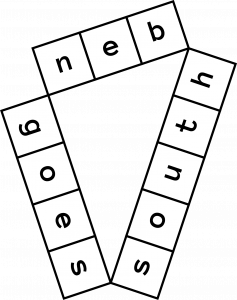
GMT+2
October 28th
14:00
Introduction
Introduction
University of Zagreb, Vice-Dean of International Affairs of Faculty of Architecture
14:20
Keynote
Togetherness / Togetherless, Venice Biennale 2021
University of Rijeka, External Associate of DeltaLab – Center for Urban Transition, Architecture and Urbanism
14:55
Keynote
15:30
Virtual Coffee Break
15:45
5 Parallel sessions
What spatial conditions trigger collectivity and togetherness? How do the changing programs of social condensers affect the thresholds toward public space? Can we look into historic patterns of public and communal spaces typical for southern Europe? The specific conditions of warm climates made the interstitial space of the city the stage of public life, and this is legible even in minimal interventions such as the stone street bench or the communal loggia. Translating spatial interventions as social acts into now, how can we ensure this framing will not only meet the need, but instigate a need of coming together?
Diogo Aguiar (moderator)
Diogo Aguiar Studio, Architect Founder
Antonis Papangelopoulos
National Technical University of Athens, Teaching Assistant at School of Architecture
Francesco Caneschi
University of Porto, PhD Candidate at Faculty of Architecture
Francesco Saverio Fera
University of Bologna, Full Professor at Department of Architecture
Malen Chung
ENSA Toulouse, PhD Candidate at School of Architecture
Natacha Issot
ENSA Toulouse, PhD Candidate at School of Architecture
Vanja Rister
University of Zagreb, Associate Professor at Faculty of Architecture
How has climate change made cities less livable, and how can we mitigate this? How can heat island reduction and green infrastructure aid in creating public spaces which are more inviting? What particular challenges does Southern Europe face in achieving greener cities?
Traffic and pollution have had a devastating effect on cities and the issues of sustainable commuting have been discussed for a long time now. But the topic closely related to making the city commute more sustainably, such as public transport and bicycles, is the walkable city which implies its re-densification, the promotion of proximity of all city’s functions.
The dense South European city is a tradition we know well and can learn from, but which also requires another look into approaching historical cores, regardless of whether they have been touristified or abandoned. This is directly related to the collectives inhabiting them, as a walkable city is also a city of rich interaction.
Mia Roth-Čerina (moderator)
University of Zagreb, Vice-Dean of International Affairs of Faculty of Architecture
Ana Sopina
University of Zagreb, PhD Candidate at Faculty of Architecture
Antonio Esposito
University of Bologna, Professor at Department of Architecture
Elina Varouxaki
Natinal Technical University of Athens, MSc Student at School of Architecture
Marta Labastida
University of Minho, Professor at School of Architecture
Maureen Certain
ENSA Toulouse, PhD Candidate at School of Architecture
Sadije Deliu
University of Zagreb, PhD Candidate at Faculty of Architecture
Sara Oliveira
Gaiurb, Intern Architect
What are examples of successful reprogramming and retrofitting of historically significant buildings to make them active and respond to contemporary needs of public space and communities? How to mitigate the complex issues of renewal of buildings which on one hand have to meet current technological and energetic standards and on the other retain their original significance and language?
Ida Križaj Leko (moderator)
University of Rijeka, External Associate of DeltaLab – Center for Urban Transition, Architecture and Urbanism
Giulia Turci
University of Bologna, PhD Candidate at Department of Architecture
Iva Muraj
University of Zagreb, Associate Professor at Faculty of Architecture
Jana Horvat
University of Zagreb, PhD Candidate at Faculty of Architecture
Mar Muñoz-Aparici
DELFT University of Technology, PhD Candidate at Faculty of Architecture
Marin Duić
University of Zagreb, PhD Candidate at Faculty of Architecture
Nuno Valentim
University of Porto, Assistant Professor at Faculty of Architecture
Saveria Boulanger
University of Bologna, Adjunct Professor at Department of Architecture
What particular challenges do we face when talking about culture, migration, inclusion, interaction? How can architectural or urban intervention help in overcoming these issues while creating scenarios for cultures to meet and enrich each other? Does a meeting of cultures carry a new architectural expression? How does this extend across the space-user binary and include symbolisms, digital realities, non-human actors, seasonal migration and nomadism, to create a productive ecology benefiting everyone? Who is then the architect, is he a creator as much as an empathic mediator? What lessons will be transposed into the way we educate? Will this affect not only content, but also steer toward a more process-oriented and less goal-oriented value system?
Riva Lava (moderator)
National Technical University of Athens, Assistant Professor at School of Architecture
Eva Andronikidou
National Technical University of Athens, PhD Candidate at School of Architecture
Ivana Fabrio
University of Zagreb, Professor at Faculty of Architecture
Joaquim Moreno
University of Porto, Professor at Faculty of Architecture
Kristina Careva, Rene Lisac
University of Zagreb, Professors at Faculty of Architecture
Can we look into opportunities to create stronger student collectives which carry agency and interact with the issues surrounding them? How do we frame the collectives of our schools, and reaffirm the school as part of a cultural and societal collective in the broadest sense? The future-oriented goal of giving an expression to a more beautiful, sustainable and inclusive environment, as the Bauhaus one hundred years ago gave an expression to the new industrial society, will very much be articulated by the generations educated today.
Teresa Calix (moderator)
University of Porto, Assistant Professor at Faculty of Architecture
Beatriz Rosendo
University of Porto, MSc Student at Faculty of Architecture
Karin Šerman
University of Zagreb, Professor at Faculty of Architecture
Paula Gândara Reis
Gaiurb, Intern Architect
Rea Novaković Matošić
University of Zagreb, BSc Student at Faculty of Architecture
Vili Rakita
University of Zagreb, MSc Student at Faculty of Architecture
16:45
Virtual Coffee Break
17:00
Keynote
City Acupuncture
University of Zagreb, Professors at School of Architecture
17:25
Keynote
Co-creating in Design Education
University of Zagreb, Professor at School of Architecture
17:45
Recap and next steps
Parallel Sessions Moderators and Speakers
18:45
Announcement of next event and wrap-up
University of Bologna, Full Professor at Department of Architecture
19:00
Closing
Introduction

Mia Roth-Čerina, PhD, is an architect and associate professor at the Department of Architectural Design at the Faculty of Architecture, University of Zagreb, as well as a Council member of the European Association for Architectural Education. She has taught architectural design since 2001, won numerous architectural competitions and awards in partnership with Tonči Čerina, led extracurricular workshops exploring new modalities in higher architectural education, served as a member of national and international professional, public and faculty bodies, engaged as guest critic and jury member, written and exhibited on both her work and research. Her primary interests in both professional, teaching and research practices are spaces serving the public, particularly educational buildings. Since 2016 she has been serving as Vice-dean of international relations and art at her Faculty, during which time she has extensively worked on involving the school in the pinnacle of relevant architectural education discussions.
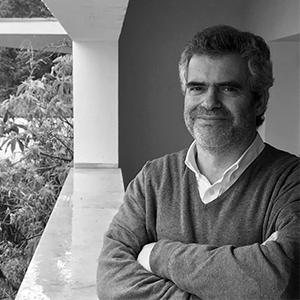
João Pedro Xavier is an architect and full professor at the Faculty of Architecture, University of Porto (FAUP), where he received his degree in 1985, and his Ph.D. in Architecture in 2005. He worked in Álvaro Siza’s office from 1986 to 1999. At the same time, he established his own practice as an architect. Xavier is a member of CEAU’s research teams – Architecture: Theory, Project, History (ATPH) – and – Digital Fabrication Laboratory (DFL). The relationship between architecture and mathematics, especially perspective, is his main research interest. He is the author of the books Perspectiva, perspectiva acelerada econtraperspectiva (Perspective, accelerated perspective and retarded perspective) and Sobre as origens da perspectiva em Portugal (About the origins of perspective in Portugal). He is correspondent editor of the “Nexus Network Journal”, and member of the “European Association for Architectural Education” (EAAE) Council.
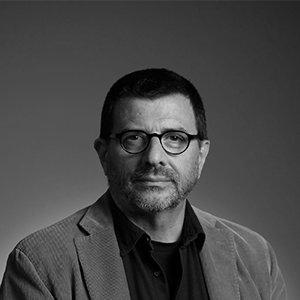
Bojan Baletić is the Dean of the Faculty of Architecture at the University of Zagreb. Until recently he headed the PhD programme Architecture and Urban Planning (2017-2021). From 2006 to 2014 he was the Vice-Rector for Spatial development and interinstitutional cooperation at the University of Zagreb. He published many scientific and professional papers, led many national and international research projects, currently heading two Horizon 2020 at the Faculty of Zagreb. He is the author of architectural, urban and multimedia projects as well. He is a member of the Croatian Academy of Technical Sciences and a member of the Croatian Delegation for collaborating with UNESCO as well as the Board for Renovation of the Croatian Government. He is a member of the Croatian cluster of creative and cultural industries as well as the member of the Partner council of Zagreb Agglomeration.
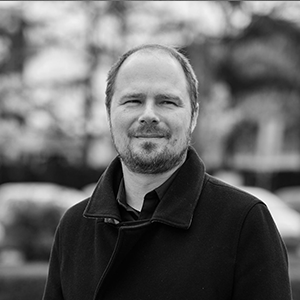
Luka Korlaet was born in 1974 in Zagreb. He received his Master’s Degree and Doctorate from the Faculty of Architecture, where he teaches Residential Building Design. He was a member of the Executive Board of the Zagreb Society of Architects (Društvo arhitekata Zagreba) and of the Assembly of the Croatian Architects’ Association (Udruženje hrvatskih arhitekata) during the 2009-2013 terms. He is also an active member of the Assembly of the Chamber of Architects (Komora arhitekata) and the National Committee of Europan. He is a long-term associate in the study conducted by the Faculty of Civil Engineering on the topic of earthquake risk assessment in Zagreb, and drafting coordinator of the catalogue of projects for type prefabricated buildings of the Faculty of Architecture, intended for the reconstruction of the Sisak-Moslavina County. He is the Head of the Working Group for Housing and Urbanism (We can!/Možemo!) and he also participated in the development of its Zagreb 2021 electoral programme. Luka Korlaet was elected Deputy Mayor of the City of Zagreb on 30 May 2021.
Keynotes
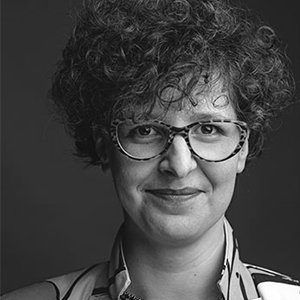
Ida Križaj Leko (1983) studied at the Faculty of Architecture, University of Zagreb, where she got the Master of Architecture degree. In 2005 she participated in Master Class ”Flood Resistant Housing” led by Greg Lynn as a part of the International Architecture Biennale in Rotterdam. Through years of her study and afterwards she worked in various architectural offices as a project designer. In 2012 started working as a freelance architect in Rijeka and later formalized her practice through her own architectural office. In 2014 she won the national award ”Viktor Kovačić” as a part of a team who designed Sport’s Hall and Public Square in Krk. In 2018 she won another national award ”Bernardo Bernardi” in co-authorship with Ana Boljar for interior design of RiHub – coworking space created as a part of the project Rijeka 2020 – European Capital of Culture. She is part of the authorial team that represents Croatia at the 17th International Architecture Exhibition – Venice Architecture Biennale. She is an external associate of DeltaLab – Center for Urban Transition, Urbanism and Architecture at the University of Rijeka.
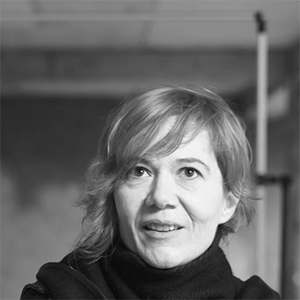
Maja Furlan Zimmermann is an architect. Together with Mirela Bošnjak and Mirko Buvinić, she founded X3M, a Zagreb-based architecture studio, a small practice where the three partners design and manage all their projects fully in-house. They regularly take part in open architectural and urban planning competitions and won several, mainly for the educational buildings. Since 2003, she has been engaged in architecture education, first at the Faculty of Architecture in Zagreb and lately at the University of Split’s Faculty of Civil Engineering, Architecture and Geodesy where she has taught architectural design. The Žnjan – Pazdigrad Primary School won several national architecture awards and was nominated for the 2019 EU Mies Award.
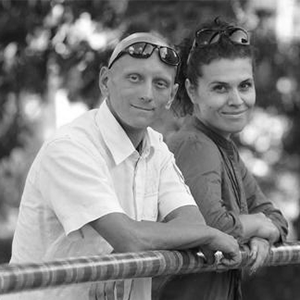
Kristina Careva, PhD, MArch, and Rene Lisac, PhD, MArch, are associate professors at the Faculty of Architecture, University of Zagreb. They are the authors of the City Acupuncture initiative active since 2009, primarily through interdisciplinary and participative workshops. Based on the initiative, at the graduate study of the Faculty of Architecture from the academic year 2017/2018, Rene and Kristina’s elective course “Participative design of space” is open to architects and other professions alike. The initiative has inspired several inclusive projects in the region and received significant international recognition of the 20th Salon of Architecture in Novi Sad, in the category of experiment in architecture. Besides integral planning with participative and interdisciplinary approach, Kristina’s field of interests are architecture and children in which she issued two manuals, while Rene’s interest lies in sustainable strategies for urban and remote areas as well as innovative methods for sustainable scenarios.
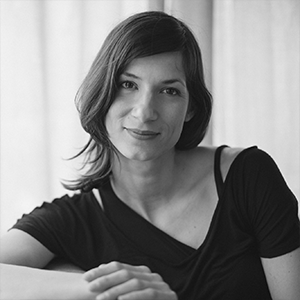
Ivana Fabrio was born in Zagreb, Croatia, in 1977, graduated Industrial design in 2000 from School of Design, Faculty of Architecture, University of Zagreb. She pursued Master education at the Design Academy Eindhoven, The Netherlands, as a scholar of Netherlands Organization for International Cooperation in Higher Education, and obtained MA in design degree in 2000. After a traineeship at Ineke Hans studio in Arnhem/The Netherlands, Ivana started teaching at School of Design, Faculty of Architecture at University of Zagreb, in 2003. Her main field of interest is design research and anthropology with the focus on participatory methods within social design practice. Part of her educational activities are dedicated to coordinating projects of collaboration with business sector, but also non-governmental organizations such as Centre for peace studies and Roda (Parents in Action – NGO that actively works to protect the rights of children, parents, future parents and families as a whole), on the projects of social innovation (Learning Spaces in Transition, Bars are not barriers and Design for Social Change). She has been a member of the management board of Croatian Design Society from 2005-2009, where she still occasionally collaborates on various subjects.
Parallel Sessions
#1 Architecture Triggering Interaction
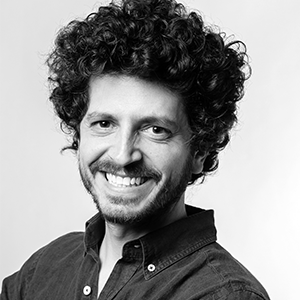
Diogo Aguiar (Porto, 1983) is an architect by the Faculty of Architecture of the University of Porto (FAUP, 2008). In 2010, he co founded studio LIKEarchitects, an internationally awarded practice in the fields of Art and Ephemeral Architecture.
Aguiar is also co-author of the Eco-Resort in Pedras Salgadas, Portugal, built in 2012, which has won the ArchDaily Building of the Year Award. In 2016, he launched Diogo Aguiar Studio, an architectural practice that was invited for the official Portuguese representation to the Venice Architecture Biennale 2018, curated by Nuno Brandão Costa, with the project Garden Pavilion, in Museu de Arte Contemporânea de Serralves.
Since 2016, Diogo Aguiar has been the commissioner at Concreta, the main architecture and construction biannual fair in the north of Portugal, trying to gather architects and the industry. Since 2016, Diogo Aguiar is also cofounder and co-curator of Galeria de Arquitectura, an independent space in Porto dedicated to a reflection on the city and architecture. In 2019, he was appointed co-curator, with Javier Peña Ibáñez, for the Architecture field at the Maia Contemporary Art Biennale, commissioned by Andreia Garcia. Since 2020, he has been an invited assistant professor of Architecture at ISCTE-IUL, in Lisbon, and, since 2021, at FAUP, in Porto.
His professional work has been world-wide published in several print and online magazines and distinguished in international awards, with nominations for the BigMat Prize, the FAD Awards or the Mies van der Rohe Prize.
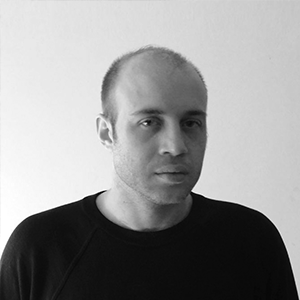
Antonis Papangelopoulos holds a Diploma in Architecture and a Post Masters Degree in Research in Architecture Spatial Design from the National Technical University of Athens (NTUA). He has served as a Teaching Assistant in Architectural Design studios and is currently engaged in research on questions of spatial justice focusing on the intersections between aesthetic practices, urban design and the commons. He has collaborated with multiple architectural practices in Greece and abroad, participating in projects of wide programmatic diversity, ranging from housing to public use complexes. Together with Yannis Mantzaris and Marianthi Papangelopoulou he is a co-founder of Studio Enyo.
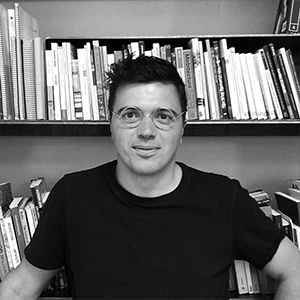
Francesco Caneschi (1990) was born in Firenze (IT). His PhD project, financed by FCT and developed at FAUP and at DIDA, is entitled: Glocal Tools. Temporary actions in Urbanism and Architecture.
He was an Arquia Foundation intern at Aires Mateus Associados. He participated, as a researcher selected by the Rectorate of the University of Aveiro, in the Mobility MasterPlan of the UA Campus. He obtained his Master Degree in Architecture at FAUP in 2018 and he finished his Bachelor in Architecture at the Faculty of Architecture of Firenze in 2016. In 2014 he co-founded the collective ab-USO, with which he developed several projects in public and common spaces. He participated in various projects by Orizzontale that are currently a study case of the Glocal Tools research. He’s involved in the organization of the archive of Titti Maschietto, co-founder of the radical architecture group UFO. His research interests are radical architecture and incremental urbanism.
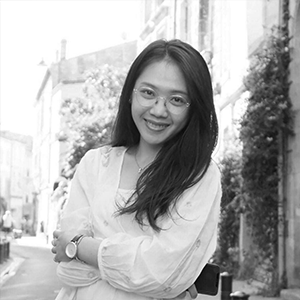
Malen Chung is a PhD candidate in Architecture and urban heritage conservation at Architecture Research Laboratory of National School of Architecture of Toulouse, France. Her doctoral research focuses on Large scale architecture preservation of Sangker River within Battambang territory in Cambodia using Landscape preservation approach. Prior to starting her doctoral, she taught courses in Architecture Science at Limkokwing University in Cambodia and has been Assistant Lecturer in Architecture Workshop and Architecture Conservation courses in Royal University of Fine Arts, Cambodia. She obtained her Bachelor of Architecture and Urbanism in Royal University of Fine Arts in 2016. Afterwards, she pursued the master of science in Building Technology from University of Saint Malaysia. For years of involvement in both educational and especially conducting in preservation and restoration of heritage buildings, she has always been fascinated with urban conservation and development and landscape areas are most of the time overlooked in favor of tall or ground structure.
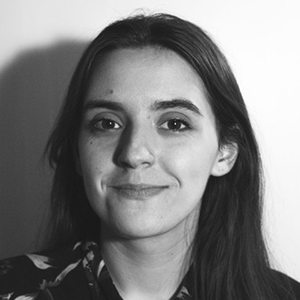
Natacha Issot, who graduated from ENSA Toulouse, is currently in her first year of PhD at the architectural research laboratory in Toulouse (LRA). After two years of Master on the « heritage » thematics, her thesis questions the 20th Century heritage. She particularly takes interest in the recognition of use value in the heritage development process of large housing estates in France. Her thesis deals with different notions about this particular heritage, such as recognition, protection, or valorization.
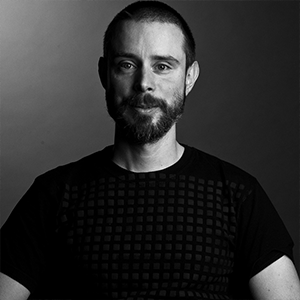
Vanja Rister graduated at Architectural faculty University of Zagreb in 1999. He is currently an associate professor at the Department of Architectural Design, Architectural faculty in Zagreb where he teaches. He is engaged in architectural praxis taking part in architectural competitions, designing, and building mostly in public and educational typology. He is also an author of scientific and professional papers and has collaborated on textbooks and studies in the field of educational typology architecture. With coauthors he was awarded national and professional awards for multiple build projects in 2012, 2014 and 2020.
#2 Green Infrastructure, Public Space and Walkable Cities
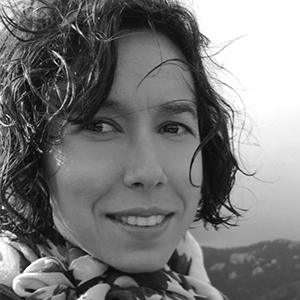
Ana Sopina is a graduate architect, a PhD candidate and an assistant at the University of Zagreb, Faculty of Architecture, Department of urban planning, spatial planning and landscape architecture. She has participated in national and international scientific research projects and is active in scientific research with special interest in relations of urban and natural landscape, urban development and public landscape places. In her professional work she has worked on architecture, protected cultural heritage, landscape architecture, spatial and urban planning projects. She is connecting photography and hiking with scientific research, professional work, and teaching in the field of architecture and urbanism.
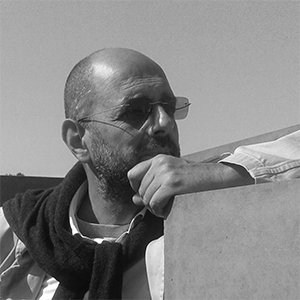
Antonio Esposito (Rome, 1961) distributes his commitment between design, teaching and research. He has produced and published several studies on Portuguese contemporary architecture, a reality with which he has forged a relationship of cultural confrontation for more than thirty years. His other research and studies on cities and on the state of contemporary architecture have produced numerous writings and essays. Several of his projects have been exhibited in collective exhibitions or published in Italian and foreign magazines and collections. These include the Caramanna house, the De Nigris house, the Bicentenary square in Mexico City and two competitions in Bari, both winners of the second prize. He has lectured on his work and on various topics of modern and contemporary architecture. Since 2011 he is a professor of architectural and urban composition in Cesena and Bologna where he coordinates a Degree Laboratory by orienting design theses concerning various Italian and foreign cities. Previously he taught at several Italian faculties as a contract professor.

Elina Varouxaki is currently working in an architecture practice in Athens after graduating NTUA school of Architecture and studied a semester in the Bauhaus-Universität Weimar, participating in the development of the urban ring of Leipzig. She has curated performances, radio shows exploring the urban public space and participated in a wide range of design projects, individually and in collaboration, spanning from furniture pieces to renovation of preserved buildings while in each project experimenting with a range of different materials. She finds interest in the housing problem as posed in different eras in Europe and investigated this in her thesis Realistic Utopie, exploring how absent elements of co-housing can be transcribed in the Athenian context. The theoretical research extends to findings of undiscovered essays of 1960s Greek architect D.Pikionis in a Medieval fortress in Rethymno, published both online and in paper investigating how the tourist narrative is transformed.
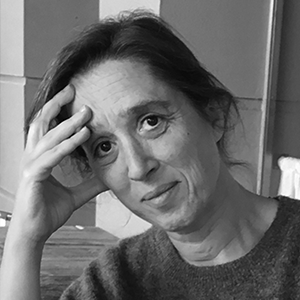
Marta Labastida is an Architect (1998) from Barcelona School of Architecture (ETSAB-UPC) with Master’s in Landscape Architecture (2000, ETSAB-UPC) and PhD Architecture: City and Territory (2013, Architecture School of University of Minho – EAUM). Since 2002 she has taught in EAUM where she coordinates Design and Theory Units related to Territory, Landscape and Public Space. Since 2015 she has been an integrated researcher of Lab2PT (Landscape, Heritage and Territory Laboratory) of the University of Minho. Her research is focused on a constant search and definition of operative landscapes that promote new planning and design tools to reach more resilient territories. As a researcher she participated in several projects as “NoVOID: Ruins and vacant lands in the Portuguese cities: exploring hidden life in urban derelicts and alternative planning proposals for the perforated city” (2016-19) and “The Sea and the Shore, Architecture and Marine Biology: The Impact of Sea Life on the Built Environment” Between 2001-08 integrates consulting teams for several Master Plans in Portugal: Vila Nova de Famalicão, Guimarães and Porto. Prior to 2001 she worked as a collaborator architect with Manuel de Solà-Morales and Rosa Barba.
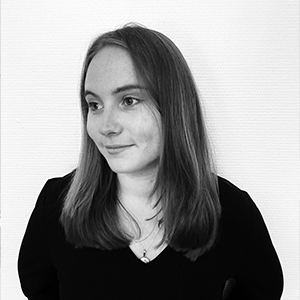
Maureen Certain is a PhD Candidate at the Research Laboratory of Architecture in Toulouse (LRA) and at the Center for Environmental Planning and Technology in Ahmedabad (CEPT). After a Master’s degree at the College of Urban Planning of Chicago (UIC) and a diploma on the theme of traditional Indian water systems at the National School of Architecture in Toulouse (ENSA), her thesis questions the future of these devices in the face of climate change and the recognition of their heritage value.
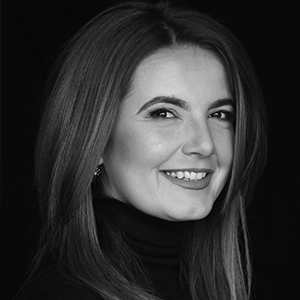
Sadije Deliu is an architect/planner with 15 years of experience in practice (consultancy, UN-Habitat, NGO) and 10 years as a lecturer in higher education (UBT) in Pristina, Kosovo and Montenegro. She has written guidelines and papers on participatory spatial planning, sustainable building design and energy efficiency (EE). She is certified for Health and Safety and is a member of ISoCaRP. Sadije is a PhD student at the University of Zagreb in the field of climate-adaptive urban planning. She is the founder of Plan-A Consulting, a company dedicated to sustainable planning and management, environment and EE.
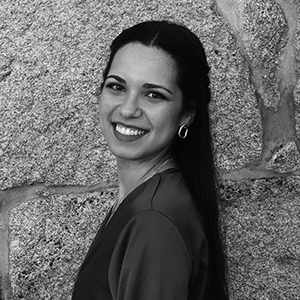
Sara Oliveira has a Master’s Degree in Architecture from the Faculty of Architecture of the University of Porto (FAUP, 2020).
In 2018, Sara participated in a pilot experience that joined the “Morphologies and Dynamics of the Territory” research group from the Centre for Studies in Architecture and Urbanism of FAUP, Habitar Porto and Junta de Freguesia do Bonfim. This project later resulted in “Arquitetos de Família” workshop, a platform that centers their response on social housing problems, specifically in ilhas of Porto. A year later, the University of Porto awarded this initiative with the “Active Citizenship” prize in the pedagogical component.
Following this work, she then focused her master’s degree dissertation on the impact that the constructive quality of the houses have on the health and well-being conditions of its inhabitants.
Presently, she collaborates as an intern architect at Gaiurb, EM (Vila Nova de Gaia).
#3 Active Reuse and Public Buildings

Giulia Turci is an architect and PhD Candidate in Technology for Architecture at the DA – Department of Architecture of the University of Bologna and teaching tutor in the Laboratory of Architecture Construction. Her fields of expertise are technologies and tools for energy efficiency at building and district levels, sustainable design strategies for urban regeneration, smart and integrated solutions for adaptation to climate change. Her research is currently focusing on the definition of a collaborative framework to promote the implementation of Positive Energy Districts (PEDs) in the urban context.
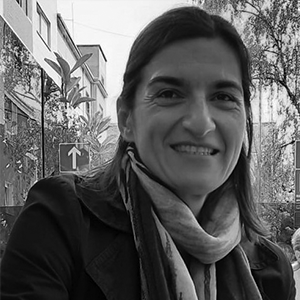
Iva Muraj, PhD, M.Arch is an associate professor at the Department of Architectural Technology and Building Science, Section of Architectural Technology, Building Physics, Materials and Building Technology at the University of Zagreb, Faculty of Architecture. Her research interests include energy efficient refurbishment, built heritage, sustainability, green building, architectural technology, building physics and materials.
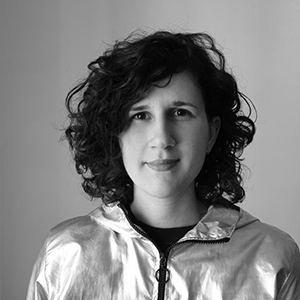
Jana Horvat (Zagreb, 1993) is an architect and researcher currently working as a teaching assistant at the University of Zagreb Faculty of Architecture, where she graduated with highest honours in 2019. Since 2020 she has been enrolled in the PhD programme “Architecture and Urban Planning” at the same Faculty. During her studies she was awarded the Dean’s and Rector’s Awards. She regularly takes part in architectural and urban planning competitions and has been awarded several prizes within various teams of collaborators, most notably the 1st prize in the international “Europan 15: Productive Cities” competition for the location of Karlovac (CRO).
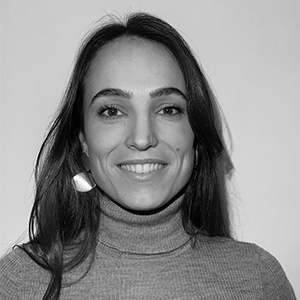
Mar Muñoz-Aparici is a practising architect and researcher doing a PhD at Delft University of Technology within the European CA2RE+ Network for design-driven research. She studies public space and public buildings and their socio-spatial implications. Currently, she’s working on multidisciplinary research on how the design of makerspaces in libraries can help convert them into spaces of urban belonging together with the National Library of the Netherlands. Her practice-driven explorations intertwine with the theoretical elements of her design-driven research. Her professional experience as an architectural designer next to her academic expertise as a researcher and doctoral candidate, provide a unique experimental approach bridging theory and practice. She is regularly involved in public presentations –CA2RE+ Conferences, IPHS Conference, Urbanism Summer School TU Delft– and lectures in educational institutions such as CEU San Pablo and the Catholic University of America. Mar graduated with honours as an MSc architect in TU Delft with the design of a public building in Valencia (Spain) supported by participatory engagement demonstrating its effects on public value creation.
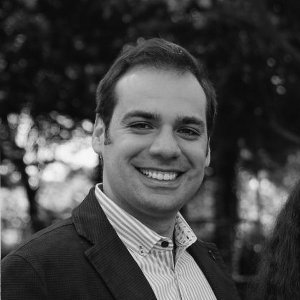
Marin Duić (Zagreb, 1995) graduated cum laude from the Faculty of Architecture, University of Zagreb in 2019, where he enrolled in doctoral studies in 2020. He is currently working as a teaching assistant at the same Faculty at the Department of Urban Planning, Spatial Planning and Landscape Architecture. He is also a graduate in the History of Art at the Faculty of Humanities and Social Sciences, University of Zagreb.

Nuno Valentim, born in Porto (1971), degree in Architecture at FAUP (1995), MSc in Rehabilitation of Architectural Heritage/Patrimony at FEUP (2007) and PhD in Architecture FAUP (2016) with dissertation and thesis in Architectural Practice, Heritage and Technical regulation. Started independent professional practice in 1994. Assistant Professor at FAUP since 2005 in the areas of Construction, Restoration, and Thesis Project (PhD).
With a vast experience in the rehabilitation of historical buildings, he has overseen the requalification of Casa Andresen in the Botanical Garden of Porto and its conversion into the Biodiversity Hall, the Extension of the Lycée Français International de Porto – Classrooms, Canteen and Sports Pavilion and for the ongoing Bolhão Market Restoration and Modernization project (Porto’s main market).
Selection of awarded works: IHRU/Nuno Teotónio Pereira National Prize and National Urban Rehabilitation Prize 2017/18 to the Rehabilitation of the Albergues Nocturnos do Porto; and the João de Almada Prize 2014 to the Rehabilitation of Marques da Silva’s building from 1928 (in co-authorship with Francisco Barata and José Luis Gomes CEFA-UP).
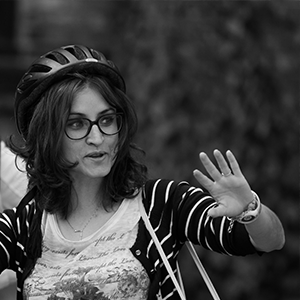
Saveria Olga Murielle Boulanger, architect, is a Climate KIC and University of Bologna PhD in Technology for Architecture and a post-doc in the Department of Architecture at the University of Bologna with teaching responsibilities. Her main fields of interest are the study of innovative strategies for urban regeneration in the existing built environment, with a specific attention to technological implementation, Smart City, climate change, resilience, mitigation and adaptation strategies, urban microclimate, bioclimatic design. She is a CasaClima Junior expert and Climate KIC Certified Professional in Low Carbon Transition. She is Adjunct Professor of Environmental Design (A.A. 2021-2022) at the Department of Architecture of the University of Bologna. She published many scientific papers in national and international key journals.
#4 Co-creating and Connecting in Education
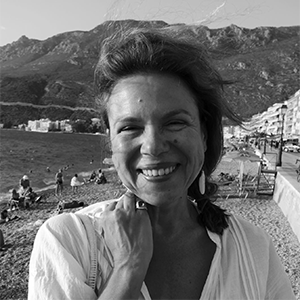
Riva Lava is an Assistant Professor at the School of Architecture of the National Technical University of Athens teaching Architectural Design and Heritage. She is a licensed architect and engineer (National Technical University of Athens / Cooper Union, New York) and holds a Ph.D. in architecture (Aristotle University of Thessaloniki). She has lived and worked in Athens and New York City. She taught design and heritage courses at the Zhejiang University in Hangzhou, China, (2017), the MA course “Art and Architecture in the Black Sea” at the International Hellenic University (2011–13), architectural design at the University of Thessaly (2009–13), architectural and urban design at Pratt Institute New York (1997–98), and communication at the Nafplion Fine Arts School of the University of the Peloponnese (2005–09). She published the book “Santorini Mindscapes” featuring her teaching at NTUA. Riva Lava participated in EU heritage research programs for the preservation of Greek art and architecture (BYZEIS), edited the university textbook “Issues of Cultural Heritage” (2010/2020), and participated at the “Architecture as Icon” project of Princeton University. She has published numerous articles on architecture and has produced a series of shows featuring urban aspects of Athens for Greek Public Television (ERT). She has worked as head of the technical department for the Organisation against Drugs (OKANA) and has been special advisor to the public order ministry on the problems caused in the historical center of Athens due to heavy migrant inflows (2010).
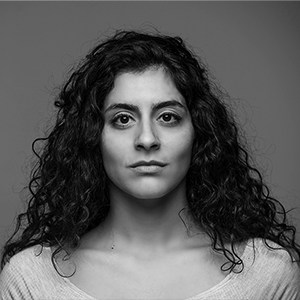
Eva Andronikidou (b. 1984, Athens) is a PhD Candidate at the Architecture School of the National Technical University Athens and a student at the Athens School of Fine Arts. She studied Architecture (2008, N.T.U.A.), Landscape Architecture (2012, Universidad Politécnica de Catalunya, Barcelona, with a scholarship by Bodossaki Foundation), and Acting (2012, LaCasona, Barcelona). She currently works as an architecture tutor at N.T.U.A. and the Erasmus Joint MasterALA, and has participated in conferences and published articles internationally. Eva has also been active as freelance architect, set designer, artist, actress, and director, exhibiting work and participating in theater productions in Italy, Spain, Portugal and Greece. She is an activist in rescuing stray animals and in volunteering with refuges youngsters. When free, she loves to travel, to read in company of her adopted pets, to hike mountains and rivers with dog Nychta, to sleep under the starry sky, to sing, to learn, to dance and to practice acrobatics.
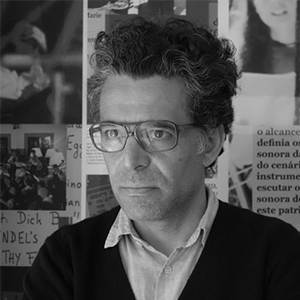
Joaquim Moreno is a Portuguese architect born in 1973, in Luanda, Angola. He graduated from the School of Architecture of the University of Porto, has a Masters from the Barcelona Technical School of Architecture and a PhD from Princeton University. Taught previously at Columbia University, Syracuse University, Princeton University, Minho University, Autonomous University of Lisbon, ISCTE and Architectural Association in London. Currently teaches at FAUP in Porto.
Curated, with the philosopher José Gil, the Portuguese representation at the Venice Architecture Biennial of 2008, curated, with Paula Pinto the exhibition Carlo Scarpa, Brion Tomb – Guido Guidi at Garagem Sul CCB, in Lisbon in 2015 and curated and edited in 2018, for the Canadian Centre for Architecture, the exhibition and book The University is Now on Air, Broadcasting Modern Architecture.
The book and exhibition Radar Veneza: Portuguese Architects in the Biennale, curated and edited with Alexandra Areia, is the most recent published product of a long research on architecture and media. The exhibition Story Telling Meters, currently on show at MAAT, researches the architectures of energy.
#5 Agency of the Student Collective
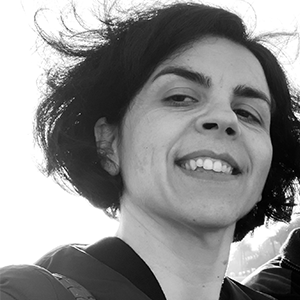
Teresa Calix, PhD, is an architect and assistant professor at FAUP. She is currently the Vice-Dean and the coordinator of the research group “Morphologies and Dynamics of the Territory” at the Centre for Studies in Architecture and Urbanism. She coordinates the Dynamics and Urban Forms Research Line among the PhD Architectural Program. She is also the head of the course “Projecto 5” – urban design studio – and “Urbanística 2 “– urban theory – of the Integrated Master in Architecture.
She has coordinated several applied-research projects and her teaching activities are opportunities to deepen the relationships with institutions as well as with experts of several areas of knowledge that relate to urban and sustainable development. This approach has the ambition to help bridging the gap between students and professionals that will in turn help form actors in the field with a firm commitment to equitable and sustainable development.
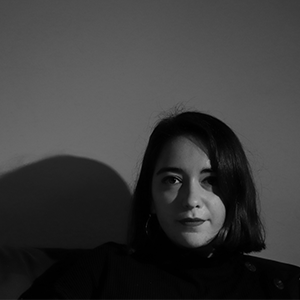
Beatriz Rosendo is 23 years old and she is currently a fifth year student of the Integrated Master in Architecture at FAUP, developing her master dissertation on Architecture and Artificial Intelligence with Professor José Pedro Sousa. She is the President of the Students Association of FAUP [AEFAUP], where she represents roughly 1100 students and coordinates a team of 56. In 2019, AEFAUP won the prize “Boas Práticas de Associativismo Estudantil/ Best Practices in Student Associations” by IPDJ (Portuguese Institute of Sports and Youth) with the annual publication of “Revista MA” – Compor.
She works as an intern at Miguel Barbosa Architects and she has been a freelance photographer (both digital and analogue) since 2017. She also has a scenography work done for the Project SupraHuman, in 2018. Previously, in the years as a Senior Tumbling Gymnast, she achieved 2nd place at the nationals in 2015. She also graduated from the Music Conservatory of Coimbra, and participated in concerts at the FEUP Orchestra.
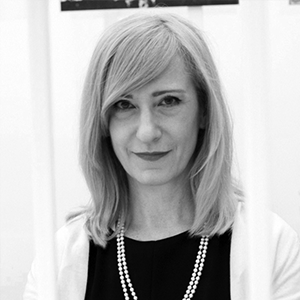
Karin Šerman, PhD, is an architect and architectural theorist, professor of architectural theory at the Faculty of Architecture, University of Zagreb and Head of the History and Theory Department. She holds a degree in architecture from the Zagreb Faculty of Architecture (1989); Master in Design Studies degree in Architectural History and Theory from Harvard University Graduate School of Design (1996); and a PhD in architecture from the University of Zagreb (2000). Her work focuses on modern and contemporary architecture and culture, and current theoretical research. She has written extensively on Central European and Croatian architectural history and contemporary architectural scene. Particular topics of her interest are modernist architectural practices and the legacy of the Bauhaus. In 2012-2015 she participated in the international research and exhibition project Bauhaus: Networking Ideas and Practice (BAUNET) led by the Museum of Contemporary Art Zagreb, within which she focused on the oeuvre of Gustav Bohutinsky, the only Croatian student of architecture at the Bauhaus. In 2014 she was the curator of the Croatian entry Fitting Abstraction at the 14th Venice Architecture Biennale Fundamentals: Absorbing Modernity 1914-2014. In 2015-2017 she served as vice president of the Croatian Architects Association (CAA).
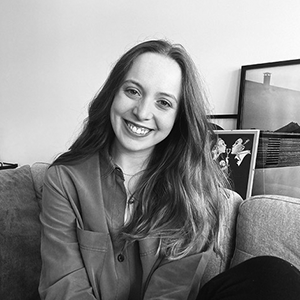
Paula Gândara Reis is an architect with a Masters Degree from Faculty of Architecture of the University of Porto (FAUP, 2020).
During senior year (2018), she joined a pilot experience that resulted in the “Arquitetos de Família” workshop, a platform that has the collaboration of the “Morphologies and Dynamics of the Territory” research group from Centre for Studies in Architecture and Urbanism of FAUP, Habitar Porto and Junta de Freguesia do Bonfim. This project won the prize for “Active Citizenship” from the University of Porto, in the pedagogical component.
Later that year, Paula worked as a mentor in Oporto Studio Bezalel@FAUP, a partnership between the Department of Architecture of Bezalel Academy of Art and Design (Jerusalem), and FAUP. In 2019, she also worked briefly at FAUP as a Projecto V mentor, under the guidance of professor Teresa Calix.
Currently, she works at Gaiurb, EM (Vila Nova de Gaia), having thus started her professional career.
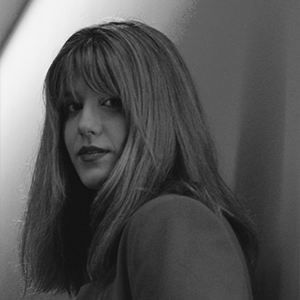
Rea Novaković Matošić is a Bachelor student of architecture and urbanism at the University of Zagreb, Faculty of Architecture. From 2017 to 2019 she was an informal member of the Student body, Faculty of Architecture, and, since 2019, she is vice president of the Student body. She takes part in the DA! festival organization team in 2020/2021, a student project that took place in January, 2021, in its 6th edition. The project connects architecture, design and art through lectures, workshops and a student exhibition.
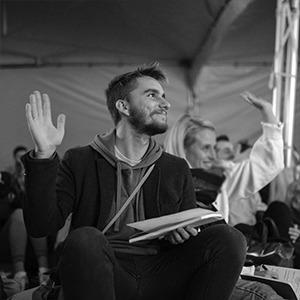
Vili Rakita was born in Zagreb in 1995. He enrolled into the Faculty of Architecture from which he recently graduated. He is a member of the editorial team of the regional student magazine. Active in EASA since 2017, in 2019 he became the president of EASA Croatia. He was a member of the organizational team of the international architecture students’ assembly Re:EASA hosted in Rijeka in 2018 and has organized many student workshops since. Through his studies and professional work he is deeply invested in participatory design and rethinking space, architectural education and the social engagement of the architect.
Announcement of next event and wrap-up

Francesco Saverio Fera (Genoa 1962), Master Degree in Architecture at the Politecnico di Milano. As a student, worked in Ignazio Gardella’s office at the architectural competition of the reconstruction of the Opera House Carlo Felice in Genoa (1st prize), project by I. Gardella, A. Rossi and F. Reinhart. From 1987 until 1991 worked in Aldo Rossi’s office in Milano being involved in different projects.
Adjunct Professor (2002) at the Charles E. Daniel Center in Genoa, Clemson University S.C. PhD (2000) at the Architectural School of the University of Genoa. Full professor (2020) in Architectural Composition at the School of Architecture of the University of Bologna – Cesena Campus. Actually he is Coordinator of the Master Degree in Architecture (five years course) of the University of Bologna – Cesena Campus.